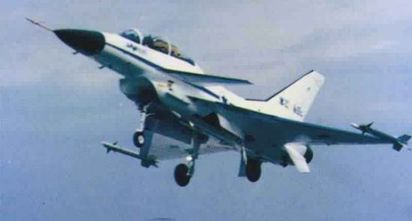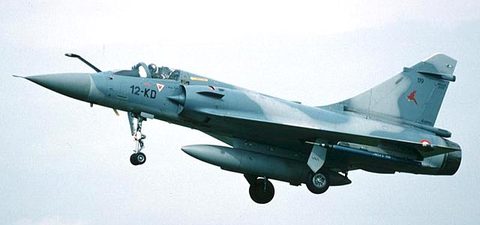The China Post reports that Taiwanese magnate Robert Tsao is none too happy about his shiny new surrender monkey label:
"Why is it that Chen’s election as president by the expression of the will and volition of the people is called democracy, and the same expression over unification with China condemned as surrender?" Tsao questioned.
Well, that’s an easy one. Tsao proposes to sign away the power Taiwan currently enjoys, in theory at least, of being able to call unification referendums. Not only would he renounce that power, but he would cede that power in perpetuity to an foreign government. In doing so, he would take a power currently invested not only in Taiwan’s executive and legislative branches, but in the people of Taiwan itself (via referendum petitions), and hand that power over to an enemy government – without a shot ever being fired in anger. He would strip political power away from elected and accountable local politicians, and present it on a silver platter to the unelected, unaccountable commissars of a hostile communist nation.
And Robert Tsao still can’t figure out WHY this would be an act of surrender? *
By definition, Taiwan’s government and people under Tsao’s plan would be SUBORDINATE to the Chinese government with regards to this issue. Taiwan would be announcing, for all the world to hear, that it was now recognizing Beijing’s authority over it. China proposes, the Taiwanese electorate disposes.
We can all debate the significance of surrendering this one, particular political power to Beijing. Is it an inconsequential surrender for a greater good, a catastrophic one, or something in-between? We can even discuss its merits and pitfalls. But at the end of the day, even a minor surrender is still a surrender. And even an inconsequential initial surrender can lead to greater surrenders further down the line. Has Tsao even bothered to spend a minute to think all this through?
Once the People’s Republic of China is granted this power, is it likely to be satisfied? Will its government say, "Well, we got what we wanted, now we can have peace in our time"? Or will it decide, quite rationally, that Taiwanese are nothing but paltroons, and demand ever more control over Taiwan’s government?
I’m willing to give Tsao the benefit of the doubt here, and assume he DOESN’T want to hand Beijing the driver’s seat. All he is is a well-intentioned, "reasonable" man with a "reasonable" compromise – who hasn’t the foggiest notion of the consequences of letting the camel’s nose under the tent. Having made this one compromise though, what other compromises is he willing to make, further down the line? Robert Tsao is offended by the surrender charge, and asks, "What sort of a man do you think I am?" The answer can be found in George Bernard Shaw’s famous quip to the lady born and bred into high-society:
"We’ve already established what you are. Now we’re merely haggling over the price."
* Not surprisingly, one of Taiwan’s leading capitulationist newspapers, the China Post, attempts to blur the issue:
…analysts say the referendum on unification Tsao proposed is a means by which the people of Taiwan can freely express their will and volition…
Obviously, the Post‘s unnamed analysts are using some definition of the word "freely" that I wasn’t previously aware of. These great Solomons aver that Tsao’s plan allows Taiwanese to "freely" express their will and volition…but only when Beijing in its infinite benevolence deigns to LET THEM.
Postscript: It’s interesting that I haven’t heard anybody discuss the constitutional issues involved here. I’m no expert on the Republic of China’s constitution, but I would very much like to see Mr. Tsao point out the relevant articles in it that state it’s OK for Beijing to become, in essence, a sixth branch of the R.O.C. government.
P.P.S.: Tsao makes a nice analogy about Taiwan’s position, which I think is nonetheless flawed:
If [Taiwan] wants de jure independence, Taiwan has to be just as well-prepared as people desiring to climb the Matterhorn…Addressing hard-core independence activists, he pointed out:
"[President] Chen, your tourist guide…got elected president thanks to you… You’ll have to ask him carefully what preparations he has made (for your Matterhorn climb) and how much.
I would argue that Taiwan’s position is a little more akin to that of someone who has lost a lot of pieces in chess. Under Tsao’s analogy, demanding a roadmap to the goal makes a lot of sense; under mine, the act of telling your opponent your strategy is just about the worst thing you can do.
Sometimes when things look bleak for you in chess, the only strategy available is to try to simply keep your options open. An opportunity may present itself later down the line, but you’ll only be able to take advantage of it if you haven’t allowed yourself to get pinned down.
Under that analogy, it seems to me Tsao’s policy is undesirable, because it closes a lot more strategic doors than it happens to open.
P.P.P.S.: It must be admitted that one of President Chen’s objections to Tsao’s proposals was exceedingly odd:
…Chen fired a Parthian shot by saying Tsao spent "a lot of money" on ads and yet people who "are striving to make a living" don’t have the time to read them.
Um, why is Chen singing verses from the KMT hymnal? It’s the OPPOSITION’S job to talk down the economy, not the President’s!
(The View from Taiwan has good news about the national economy here.)

